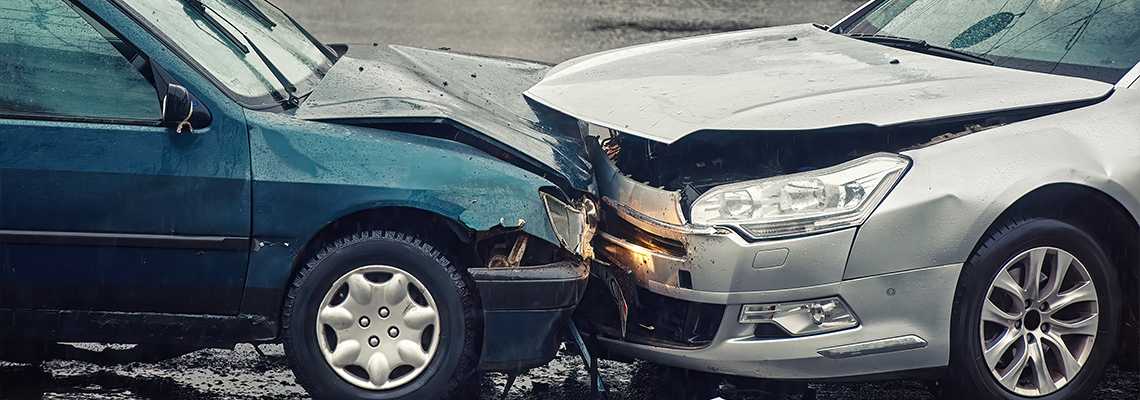
In the digital age, social media platforms such as Facebook, Instagram, Twitter, TikTok, and Snapchat have become ingrained in our daily lives. These platforms allow individuals to share moments of their lives instantly with a wide audience. While social media offers many benefits, it also has significant implications in law, particularly in personal injury cases.
For Missouri residents involved in personal injury claims, understanding how social media can impact the outcome of their case is crucial. At The Tourigny Law Firm LLC in Kansas City, Missouri, we’re committed to helping you with your dog bite liability case. Here, we’ll discuss how social media impacts personal injury cases in Missouri.
Personal Injury Cases in Missouri
Before discussing social media’s influence, it’s important to grasp the basics of personal injury claims in Missouri. Personal injury law covers legal disputes that arise when one person suffers harm from an accident or injury, and someone else might be legally responsible for that harm.
Missouri is a comparative fault state, which means that damages in a personal injury case are apportioned according to the degree of fault of each party. If you’re 20% at fault, your compensation is reduced by that amount.
Common personal injury cases include:
Car accidents
Slip and fall injuries
Medical malpractice
Workplace accidents
Product liability cases
The goal of a personal injury lawsuit is to receive compensation for damages such as medical expenses, lost wages, pain and suffering, and more.
Social Media in Personal Injury Litigation
In recent years, social media content has become a powerful tool for both plaintiffs and defendants in personal injury cases. Social media posts, photos, videos, and even private messages can be used as evidence in court. In Missouri, as in many states, social media content can be subpoenaed and admitted as evidence.
Why Does Social Media Matter?
Personal injury cases often revolve around proving the extent of injuries, the impact on the plaintiff’s daily life, and whether the plaintiff is exaggerating or fabricating injuries. Social media content can reveal:
Contradictions between what the plaintiff claims and what they post publicly
Physical activity that suggests a higher level of functioning than claimed
Social events or trips indicating mobility and health
Statements that might undermine claims of pain or disability
For example, if someone claims a severe back injury and posts photos of themselves hiking or playing sports, a defense attorney may use this as evidence that the injury isn’t as debilitating as alleged.
How Social Media Can Negatively Affect Your Personal Injury Case in Missouri
Social media usage can significantly undermine personal injury claims in Missouri by providing evidence that contradicts a plaintiff's statements regarding their injuries, privacy, behavior, or emotional state.
Evidence of Inconsistency or Exaggeration
One of the most significant ways social media can hurt a personal injury claim is by exposing inconsistencies between a plaintiff’s reported injuries and their social media activity. For instance:
A person claiming they can’t work due to injury posts pictures of themselves doing physical activities or traveling.
Posts show the plaintiff attending parties or social gatherings that contradict their claims of pain or limited mobility.
Videos or photos that demonstrate the plaintiff smiling, laughing, or engaging in strenuous activities may undermine claims of severe emotional distress or physical pain.
Missouri courts allow the opposing party to request and use social media content to challenge the credibility of the plaintiff’s injury claims.
Waiving Privacy Rights
Many users believe their social media profiles are private, especially if they have strict privacy settings. However, courts can still order disclosure of private social media content during discovery if it’s relevant to the case.
In Missouri, the legal standard for discovery is relatively broad. If a party believes that social media evidence is relevant to the injury, damages, or credibility, they can request access to those materials. Attempts to delete posts or accounts can also raise suspicion and negatively affect your case.
Evidence of Character or Behavior
Social media can also be used to investigate a plaintiff’s behavior or character. For example, posts that demonstrate reckless behavior, substance abuse, or other activities might be relevant if they relate to the cause of injury or fault.
In Missouri, where contributory negligence is factored into damage awards, any evidence that suggests the plaintiff may have been partly responsible or engaged in risky behavior could reduce the compensation they receive.
Impact on Emotional Distress Claims
Emotional distress, pain, and suffering claims are inherently subjective and often rely on the plaintiff’s testimony about their mental state. Social media can undermine these claims if posts suggest the plaintiff isn’t as distressed as they claim.
For example, if a plaintiff claims debilitating depression after an accident but posts upbeat photos or comments online, a defense attorney could argue the plaintiff’s emotional distress is exaggerated.
Therefore, understanding how social media activity can be scrutinized and potentially used against them is crucial for Missouri residents involved in personal injury litigation.
Legal Principles Governing Social Media Evidence in Missouri
The law allows for the discovery and admissibility of social media evidence in personal injury cases, subject to principles of relevance, authentication, and certain protections for privacy.
Discovery and Relevance
Under Missouri’s discovery rules, parties can obtain relevant evidence from social media if it’s “reasonably calculated to lead to the discovery of admissible evidence.” This means that if social media posts could prove or disprove elements of a personal injury claim, they’re discoverable.
Missouri courts have ruled that social media content isn’t immune from discovery simply because it was posted online or is subject to privacy settings.
Authentication of Social Media Evidence
For social media evidence to be admissible in court, it must be authenticated. This involves proving that the posts are genuine and made by the person in question. This can be done by:
Testimony from the account owner
Metadata from the posts
Correspondence or other evidence linking the posts to the party
Limits and Protections
While social media evidence is generally discoverable, there are limits to protect privacy rights. Courts in Missouri balance the need for relevant evidence against potential privacy intrusions.
For example, irrelevant social media content or material protected by privilege (such as private messages with attorneys) isn’t subject to disclosure.
Best Practices for Missouri Residents Involved in Personal Injury Claims
Given the risks social media poses to personal injury cases, plaintiffs in Missouri should follow these guidelines to protect their claims:
Limit social media activity: Consider pausing or limiting social media use during your personal injury case. Avoid posting pictures, videos, or status updates that might be construed as contradicting your injury claims.
Adjust privacy settings: Make sure your accounts are set to the highest privacy level, although be aware that this isn’t a foolproof protection against discovery requests.
Don’t delete content: Never delete posts, photos, or messages once a claim is filed or anticipated. Deleting content can be interpreted by courts as an attempt to destroy evidence, which can lead to negative inferences against you.
Consult with an attorney: Speak with a Missouri personal injury attorney before posting anything on social media. Your lawyer can guide you on what is safe to share and what could harm your case.
Document your injuries and recovery offline: Instead of posting on social media, keep a personal journal or records of your injury, symptoms, and recovery. This can help you accurately track your condition without risking contradictory public posts.
Therefore, adhering to these social media guidelines is crucial for Missouri personal injury plaintiffs to safeguard their legal claims.
How Defense Attorneys Use Social Media in Missouri Personal Injury Cases
Defense lawyers actively monitor social media profiles of plaintiffs to gather evidence that may disprove or limit liability and damages. They may subpoena social media records and use forensic experts to recover deleted posts or analyze metadata.
By presenting social media evidence, defense attorneys aim to:
Show inconsistencies in the plaintiff’s claims
Challenge the severity or existence of injuries
Demonstrate that the plaintiff’s lifestyle isn’t as impacted as alleged
This strategic use of social media often encourages fairer settlements or favorable trial outcomes for defendants.
Ethical Considerations and Misuse of Social Media Evidence
While social media evidence is valuable, it must be used ethically. Misrepresenting posts, selectively editing content, or using hacked/private data is improper and can result in sanctions.
Missouri courts expect lawyers to comply with ethical rules and privacy laws when seeking and presenting social media evidence.
Social media has fundamentally changed the structure of personal injury litigation in Missouri. What you post online can be scrutinized and used as evidence in court, potentially influencing the outcome of your case, positively or negatively.
If you’re involved in a personal injury case in Missouri, it’s crucial to understand the risks associated with social media. By limiting your social media use, protecting your privacy, and working closely with a knowledgeable personal injury attorney, you can safeguard your claim and increase the chances of receiving fair compensation.
Knowledgeable Legal Assistance
While social media is a powerful communication tool, in the context of a personal injury case, it can be a double-edged sword. If you’ve sustained an injury and need representation, contact our Attorney Greg Tourigny. Our firm serves clients throughout Kansas and Missouri, and we are here to assist with your personal injury claim. Give us a call today.



